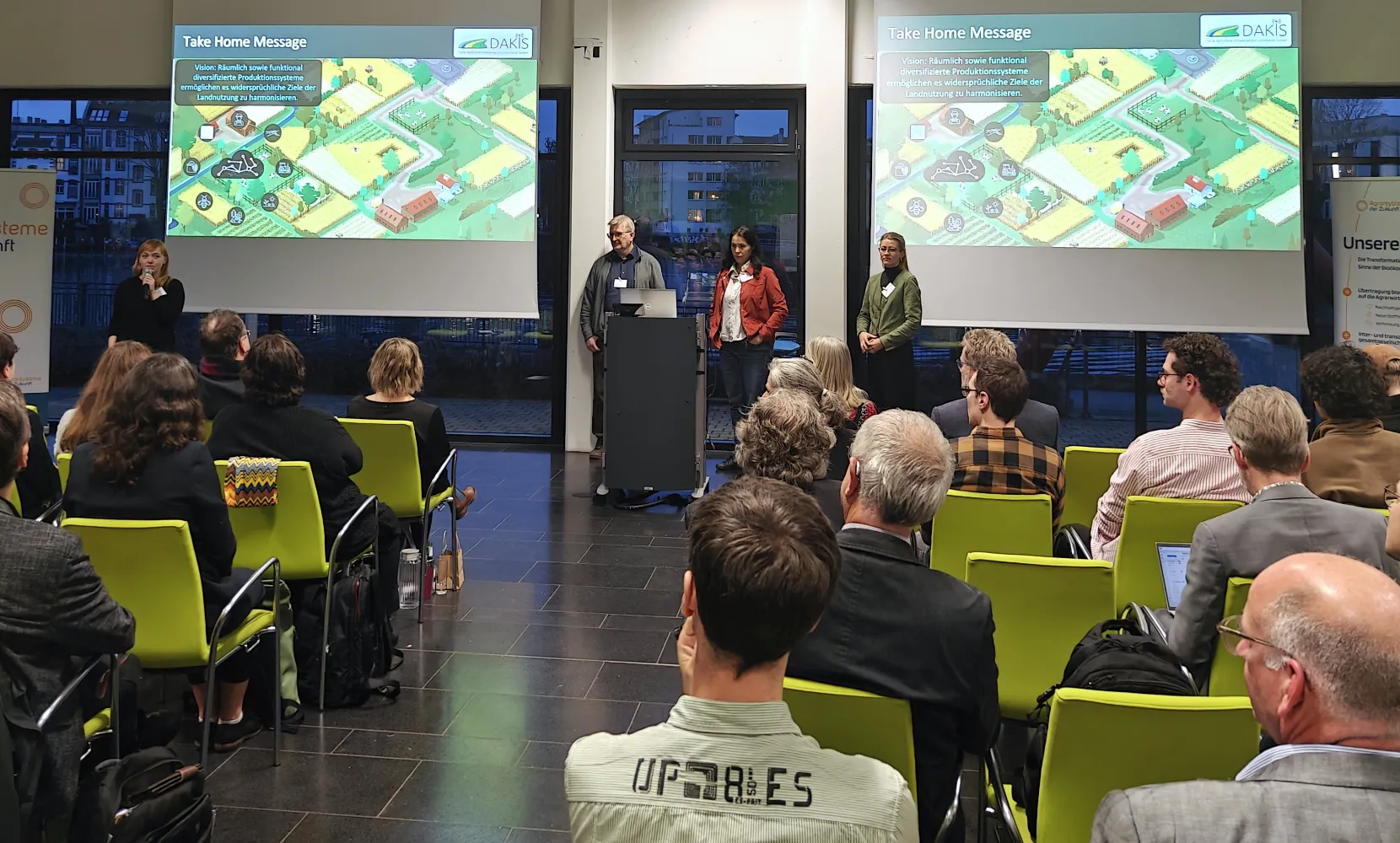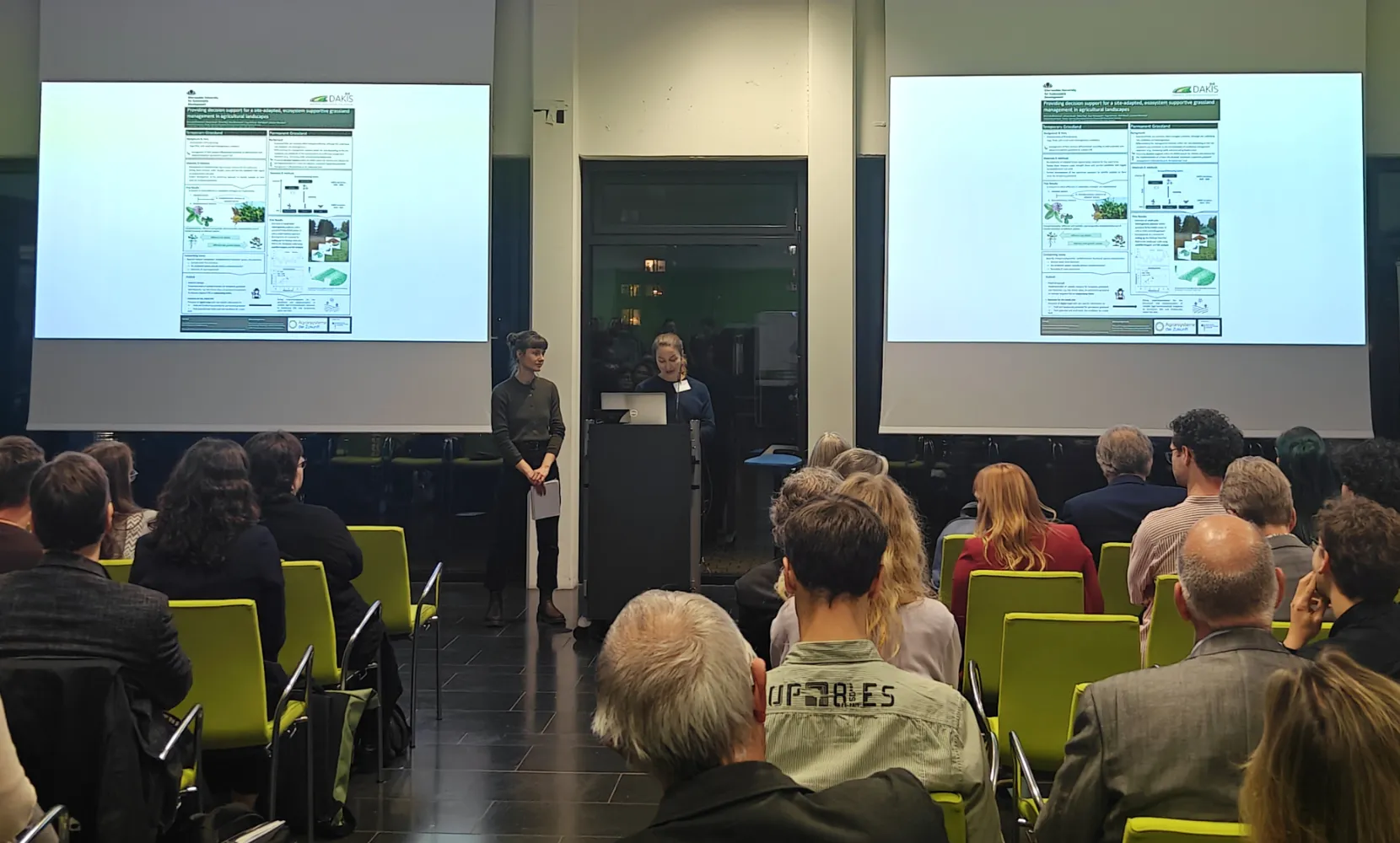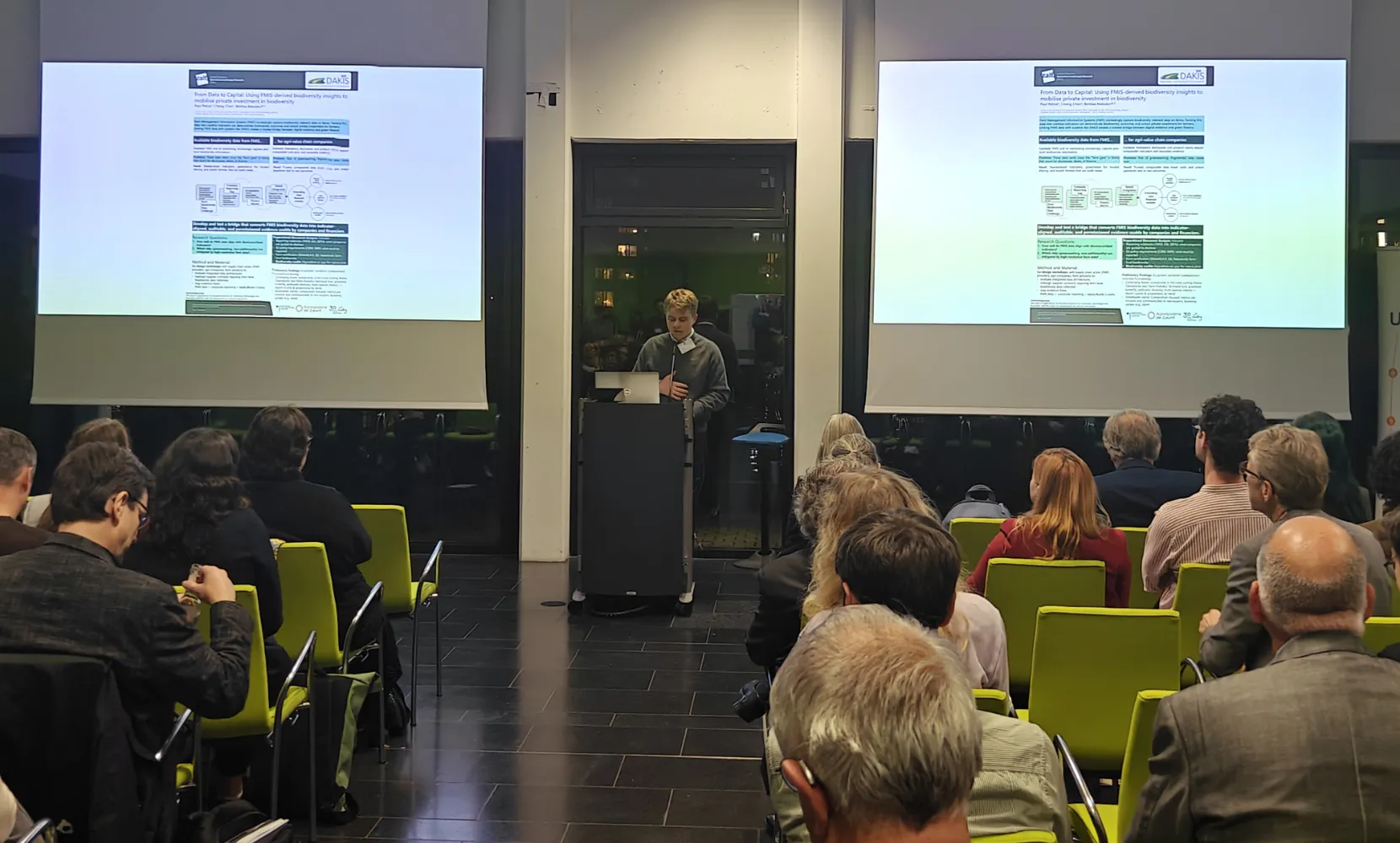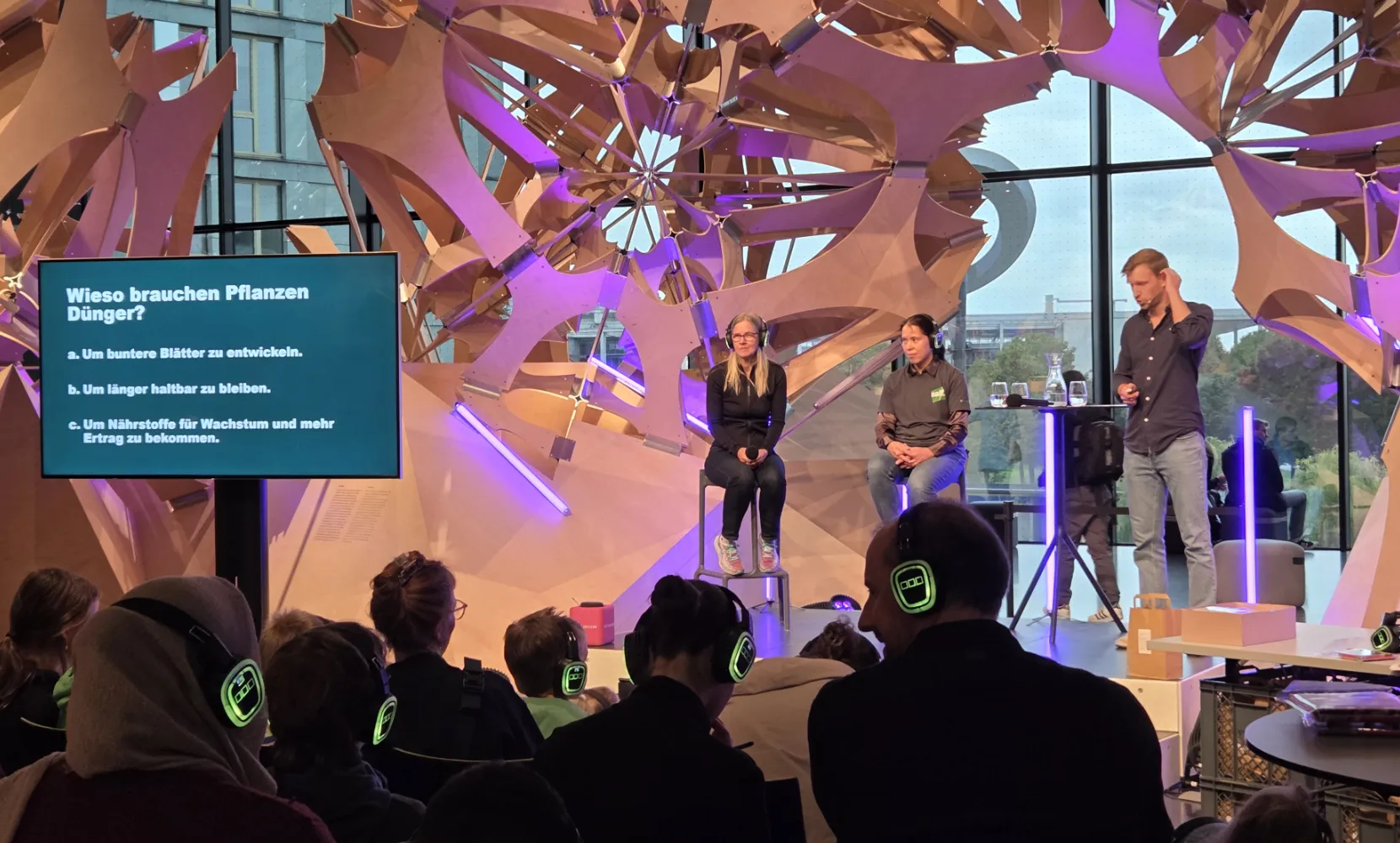Kicking off the second funding phase – Status Seminar 2025
As part of the BMFTR funding line “Agricultural Systems of the Future,” this year’s status seminar took place on November 11 and 12, 2025, at the Berlin University of Applied Sciences (HTW). At the first status seminar within the second funding phase, scientists and coordinators from all six joint projects, as well as representatives from politics and business, came together to exchange current research results, experiences, and perspectives on the transformation of agricultural and food-related systems.
Dr. Christina de Wit, Head of the Sustainable Management and Bioeconomy Division at the BMFTR, emphasized in her welcoming address: “The agricultural systems of the future are more relevant than ever, because they already stand for innovation ‘Made in Germany’ – compatible with value creation and practical application.”
The keynote speech by Dr. Hunecke from the Potsdam Institute for Climate Impact Research emphasized that “in order to achieve a genuine transformation of agricultural systems, a whole range of targeted measures is needed – as is already being exemplified in the agricultural systems of the future.”
A central component were the lectures and poster presentations by the consortia SUSKULT, DAKIS, food4future, NOcsPS, GreenGrass, and CUBES Circle. Lectures and interactive formats presented advances in the areas of digitalization, resource efficiency, urban production, circular economy, and social transformation.
“The status seminar impressively highlighted the wide variety of research topics within the funding line and how strongly the common goal of shaping sustainable agricultural systems of the future connects us,” emphasized Prof. Schreiner from the Central Coordination Office.
This year, special attention was paid to the paths from research to practice: poster pitches provided a space for exchange on obstacles, success factors, and innovative approaches to cooperation with politics, business, and society.
“This shows how solution-oriented cooperation can be used to overcome challenges in the areas of agriculture and nutrition,” says Prof. Weith, co-coordinator of the Central Coordination Office.









